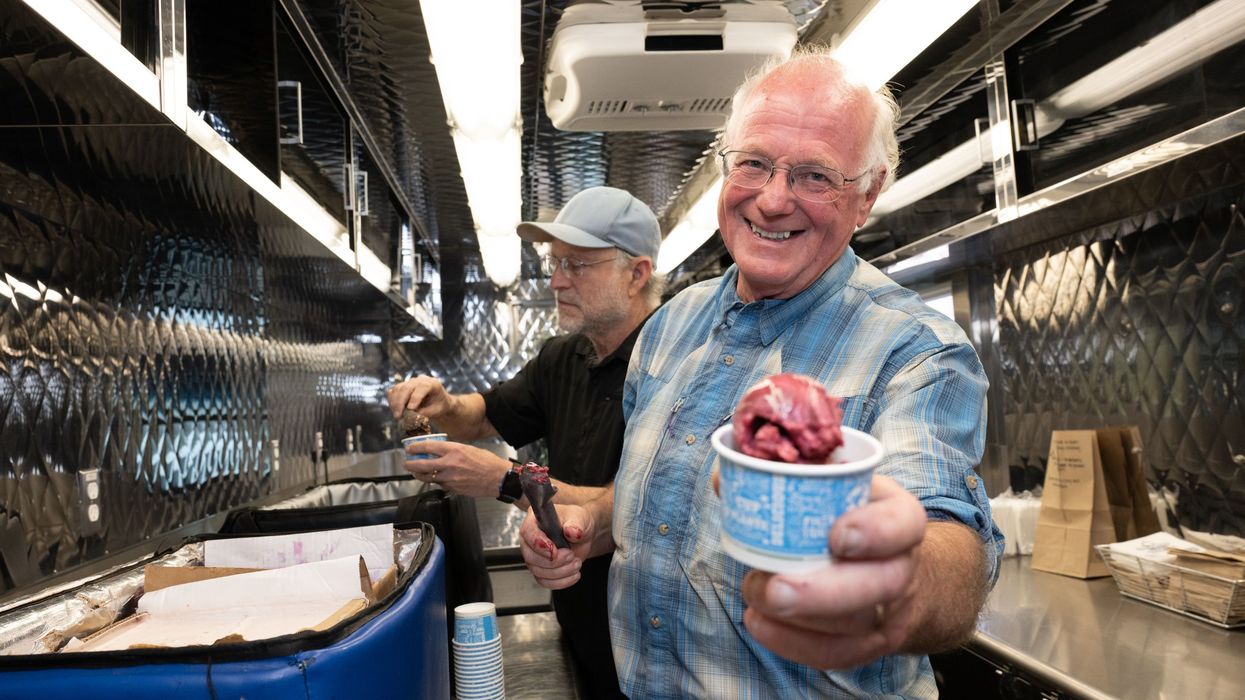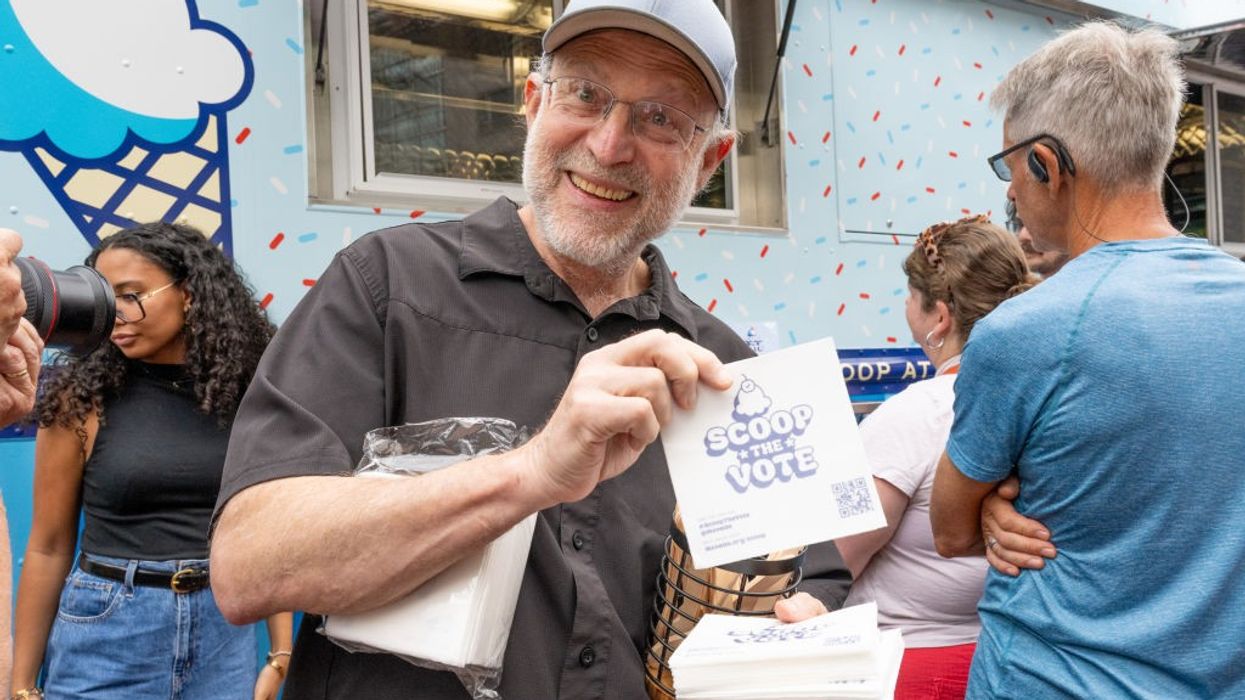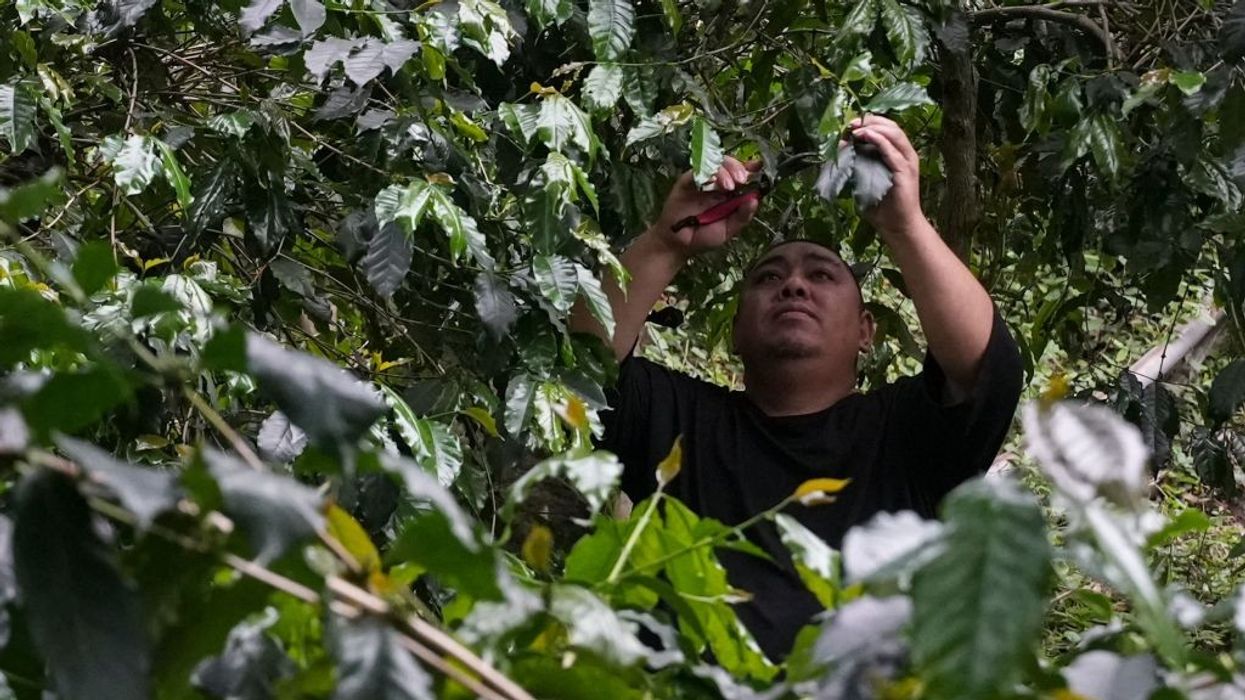Ben & Jerry's Co-Founder Wants Help Designing Ice Cream for Gaza That Corporate Bosses Wouldn't Allow
"Revolutions are creative," said Ben Cohen. "Let's see some of that creativity!"
One of the co-founders of Ben & Jerry's is asking fans to help design a new ice cream flavor to show support for the people of Palestine, after the company's corporate owners refused.
The ice cream brand's founders, lifelong political activists Ben Cohen and Jerry Greenfield, have long been at odds with the company that now owns their product, Unilever/Magnum, which they say has stifled efforts to use their platform to advocate against Israel's occupation of Palestine and its genocidal war in Gaza.
In a video posted to social media on Tuesday, Cohen—armed with a masher and a plate of watermelons, an international symbol of Palestinian solidarity—said he was taking matters into his own hands.
"A while back, Ben & Jerry's tried to make a flavor to call for peace in Palestine, to stand for justice and dignity for everyone, like Ben & Jerry's always has," Cohen said. "But they weren't allowed to. They were stopped by Unilever/Magnum, the company that owns Ben & Jerry's. Just like when Ben & Jerry's tried to stop selling ice cream in the occupied territories, they were blocked again by their parent company."
"So I'm doing what they couldn't," he continued. "I'm making a watermelon-flavored ice cream that calls for permanent peace in Palestine and calls for repairing all the damage that was done there."
Since October 2023, more than two years of genocidal war and siege have left at least 248,000 Palestinians dead, maimed, or missing, hundreds of thousands of others starving, and the vast majority of Gaza's more than 2 million people forcibly displaced. As a result of Israel's punishing bombing campaign, 92% of residential buildings have been destroyed, according to the United Nations.
Despite the ceasefire agreement signed between Israel and Hamas earlier this month, the violence in Gaza has continued. On Tuesday, Israeli Prime Minister Benjamin Netanyahu announced new "powerful strikes" on Gaza after alleging that Hamas violated the ceasefire. Gaza officials have alleged that Israel has violated the truce 125 times.
"The scale of suffering of the Palestinian people over the last two years has been unimaginable," Cohen said. "They deserve dignity, safety, and the same rights that every human being should have."
Unilever purchased Ben & Jerry's from Cohen and Greenfield in 2000, but allowed Cohen and Greenfield to remain on as brand ambassadors and members of its board, with what the pair said was a commitment that the company would give them the "independence to pursue our values."
However, in September, Greenfield stepped down from the board of Ben & Jerry's, alleging that Unilever had routinely used threats and intimidation to stop the pair from calling for "peace" and a "ceasefire" in Gaza.
Cohen said that he is producing his new product—a watermelon sorbet—independently from the company's owners.
"I'm doing this to shine a light on the experience of Palestinian people and children in particular. So the world does not look the other way," he said.
He asked viewers for suggestions to help determine what other ingredients should be included, a name for the flavor, and to create a design for the container.
Many viewers have already offered their ideas: One suggested naming the flavor "From the River to the Seed." Others suggested using components of Palestinian desserts like pistachios and pomegranates.
"Revolutions are creative," Cohen said. "Let's see some of that creativity!"


